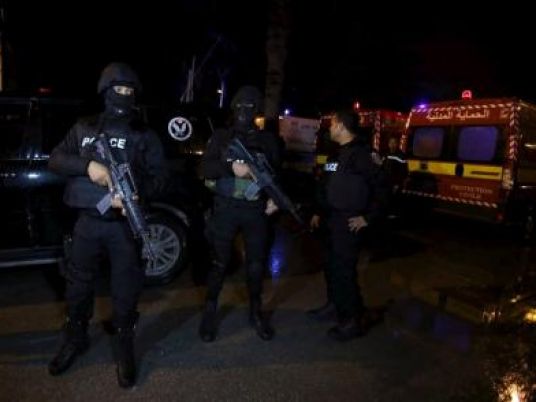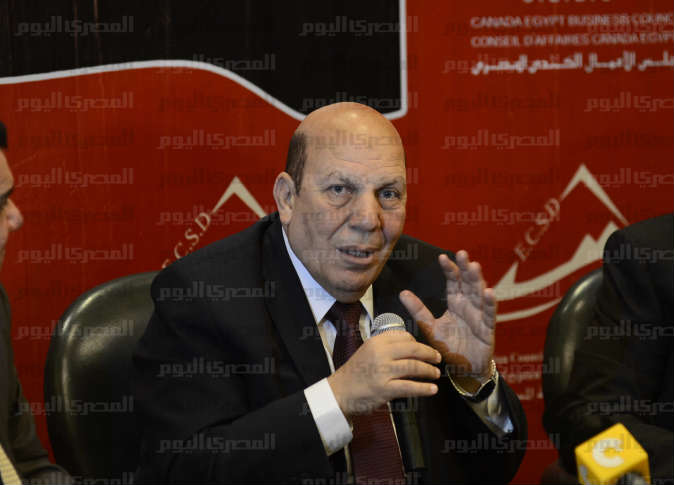
Major General Adel Labib, Minister of Local Development, said after the Cabinet's Thursday meeting the Cabinet would submit the counter-terrorism draft law to the president for approval after it has been revised by the State Council.
Article 86 defined the terrorist act as the use of force, violence, threats, or intimidation in order to disturb public order or endanger the safety, interests and security of the society, harming individuals, intimidating them, putting their lives, freedoms or security at risk, harming the national security, harming the environment, monuments, natural resources, money, buildings, public and private properties, occupying or seizing public and private properties, hindering the work of, activities or some of the activities of public authorities, judicial bodies, local units, houses of worship, hospitals, education institutions and institutes, regional and international bodies in Egypt, and diplomatic and consular missions.
It also includes hindering the application of any of the provisions of the Constitution, laws, or regulations and harming the communications or information systems, financial or banking systems, the national economy, and energy, goods, food supplies, water, and medical services during crises. The Article defined funding terrorism as directly or indirectly providing money, places, weapons, ammunition, explosives, equipment, data or other materials used to commit a terrorist crime by an individual or a group.
Article 86 also states that anyone who establishes, organizes, or runs a terrorist group, heads it or takes a leading position in it would be sentenced to death. It adds anyone who establishes, organizes, or runs an association, body, organization, group or gang against the law that calls for hindering the provisions of the Constitution and laws, preventing institutions of the state or public authorities from exercising their duty, calls for attacking the personal freedom of citizens or other public rights and freedoms guaranteed by the Constitution and the law, calls for harming national unity or social peace would be handed a life sentence. Members of groups mentioned in the above paragraph or those who promote its ideas would be jailed for no more than 10 years, according to the same article. According to the same article, anyone who cooperates with a foreign country, an association, body, organization, group or gang based outside Egypt to commit a terrorist act in Egypt shall be handed a life sentence.
Article 87 states that anyone who tries to forcibly overthrow or change the state constitution or the republican system of government would be handed a life sentence or no less than 10 years rigorous imprisonment. If the crime is committed by an armed gang or group, the punishment would be death sentence.
Article 88 says anyone who seizes by force, violence, threat, or intimidation any means of transport or fixed platforms in seas shall be sentenced to no less than 7 years rigorous imprisonment. If the seizure belongs to police or army, punishment shall be life sentence, and if someone dies during the seizure attempt, punishment shall be death for perpetrators.
Article 88 says if anyone kidnaps or detains a person to bargain the authorities or compel them to do something, the punishment shall be no less than 10 years rigorous imprisonment. Anyone who imports or makes police or army attire or impersonates police or army personnal shall be sentenced to no less than three years in prison. Anyone who assaults a person in charge of applying this law shall be sentenced to no less than seven years rigorous imprisonment. The life sentence shall be the punishment if the perpetrator causes a permanent disability to the person in charge of applying this law, uses a weapon against him or detains him. If the perpetrator kills the person in charge of applying this law, he shall be sentenced to death. Pardon is allowed for a perpetrator who help authorities to reach other defendants.
Article 98 states that anyone who has been aware of a terrorist crime or aware of preparation for it, or had information or data related to one of the perpetrators and did not inform the competent authorities shall be fined no less than LE100,000 and no more than LE500,000 and sentenced to no less than a year, or shall be punished by either of both penalties.
Article 133 says anyone who insults a public employee or any person in charge of a public service while performing his duty verbally or with a sign shall be jailed for no less than two years or sentenced to a fine not exceeding LE10,000. Anyone who uses violence against the emloyee shall be sentenced to no less than three years in prison and a fine no less than LE20,000. The bill defined as well punishments for hacking government websites and creating websites calling for terrorist acts, possessing and manufacturing arms, hiding or destroying evidence and documents relating to terrorist crimes, attacks on diplomatic or consular missions, presidential, Cabinet, parliamentarian headquarters, courts, prosecutions, police stations, security directorates, archaelogical sites, hospitals and places of worship.
Edited translation from Al-Masry Al-Youm


